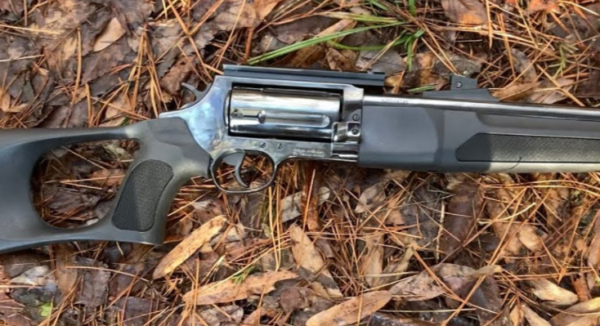Hey there, fellow firearms enthusiasts! We’re about to dive into an honest, no-nonsense breakdown of some issues you might face with the Springfield Saint Victor.
This sleek and high-performing rifle is a favorite among many, but like all things in life, it’s not always smooth sailing.

We’re here to shed light on the top 10 common problems with this firearm, so you’re always prepared and never caught off guard. Let’s get into it!
Springfield Saint Victor Problems
The Springfield Saint Victor is a well-regarded firearm, but like any product, it can have its share of issues.
Most commonly reported problems include occasional failures to feed, which could be due to the magazine or the ammo being used.
There have also been sporadic mentions of difficulties in zeroing the sights, which could be a factory defect or an issue with handling.
However, these incidents seem relatively isolated and may not reflect the overall quality of the Springfield Saint Victor.
1. Inconsistent Cycling


Cause
Inconsistent cycling in the Springfield Saint Victor can often be traced back to issues with the gas system.
The cycling process is powered by the gas system and when it’s not functioning properly, it can cause the rifle to cycle inconsistently.
The gas system plays a pivotal role in the overall functioning of the rifle, feeding the energy required for the cycling process.
Solution
The simplest solution to this problem is to check and clean the gas system regularly.
Dirt and grime can clog up the system, preventing it from functioning correctly. If cleaning does not resolve the issue, it may be necessary to consider replacing the gas system.
Remember, regular maintenance is key to ensuring your Springfield Saint Victor performs at its best.
2. Trigger Reset Issues
Cause
Trigger reset issues in Springfield Saint Victor often stem from a misaligned or worn-out disconnector.
The disconnector is a crucial component of the trigger mechanism and is responsible for catching the hammer after each shot and releasing it when the trigger is reset.
If this piece is out of alignment or damaged, it can result in the trigger failing to reset properly.
Solution
The key solution here is to inspect the disconnector for wear and tear or misalignment. If any such issues are found, it’s advisable to replace this part.
Remember, opting for high-quality replacement parts can significantly extend the life of your firearm.
Also, regular cleaning and lubrication of the trigger assembly can prevent trigger reset problems from occurring in the first place.
3. Charging Handle Snagging
Cause
Snagging of the charging handle in the Springfield Saint Victor is typically the result of a worn out or bent handle latch.
The latch is paramount in securing the charging handle in place. When this latch wears out or gets bent, it can fail to grip the charging handle properly, leading to snagging issues.
Problems with the charging handle can significantly impact the overall performance and reliability of your firearm.
Solution
The easiest fix for a snagging charging handle is to inspect the latch for signs of damage or wear. If detected, promptly replace the latch with a good quality one.
Consider upgrading your charging handle to a more durable and user-friendly one.
Regular cleaning and lubrication of the charging handle and latch can prevent snagging issues from surfacing.
Remember, maintaining the integrity of your charging handle is crucial to ensure the smooth operation of your Springfield Saint Victor.
4. Magazine Compatibility Problems
Cause
Magazine compatibility issues in Springfield Saint Victor are usually a consequence of using incompatible or low-quality magazines.
The type of magazine used can directly affect the performance of the rifle.
An incompatible magazine may not fit properly, causing feeding issues, while a low-quality magazine might not withstand the rigors of use, thus leading to malfunctions.
Solution
The most effective solution to this challenge is to ensure you use only compatible, high-quality magazines with your Springfield Saint Victor.
Remember to check the manufacturer’s specifications for the correct type of magazine to use.
Besides, you can regularly maintain and clean your magazines to keep them in top working condition.
Always bear in mind that a reliable magazine is integral to the optimal performance of your firearm.
5. Overheating Handguards
Cause
Overheating of handguards in the Springfield Saint Victor is a recurrent issue, often linked with prolonged or rapid firing sessions.
Excessive heat transfers from the barrel to the handguards, making it uncomfortable or even hazardous to handle the rifle.
This overheating can put the operator at risk, making the firearm difficult to use effectively.
Solution
You can optimize the situation by investing in heat-resistant handguards or utilizing rail covers designed to shield against high temperatures.
Using heat-resistant handguards can significantly reduce overheating. Also, remember, that moderation in firing rate can help prevent excessive heat buildup.
Regular maintenance and proper handling are crucial in preserving the comfort and safety of using your Springfield Saint Victor.
6. Loose Gas Block
Cause
A loose gas block in the Springfield Saint Victor typically arises due to the loosening of the gas block screws over time.
The gas block is a key component, funneling gas back into the system to cycle the bolt, and if it’s loose, it can lead to irregular cycling or the rifle not firing.
When the gas block is not properly secured, it can severely impact the rifle’s performance and reliability.
Solution
Addressing a loose gas block requires checking and tightening up these screws as a first step. Always ensure that your gas block is securely fastened.
If the screws are damaged or stripped, they should be replaced promptly.
As a preventive measure, regularly check the tightness of these screws during your cleaning routine.
Remember, maintaining the stability of the gas block is essential to the optimal functioning of your Springfield Saint Victor.
7. High Recoil
Cause
The issue of high recoil in the Springfield Saint Victor is usually attributed to the lightweight design of the rifle and the use of high-powered ammunition.
The lightweight nature of the Saint Victor can result in a sharper perceived recoil, making the rifle somewhat uncomfortable to shoot.
Furthermore, high-powered ammunition can exacerbate this issue, generating significant kickbacks. High recoil can affect the accuracy and overall shooting experience.
Solution
A comprehensive solution to minimize high recoil involves utilizing a muzzle brake or recoil pad to reduce the felt recoil.
Muzzle brakes can be highly effective in mitigating recoil by redirecting gases to counteract the backward momentum.
Similarly, recoil pads can absorb a substantial amount of recoil energy, making the rifle more comfortable to shoot.
Adjusting your shooting stance and grip may also help manage recoil effectively. Additionally, consider using lower-powered ammunition which can also lessen the kickback.
Remember, managing recoil effectively can significantly improve your shooting accuracy and comfort with the Springfield Saint Victor.
8. Difficulty in Field Stripping
Cause
Field stripping your Springfield Saint Victor may prove challenging due to its intricate design and the involvement of multiple components.
The process requires a specific sequence and careful handling to avoid causing any damage.
Misplacement or incorrect assembly of components could lead to functional issues down the line. Remember, each part plays a critical role in the overall performance of your firearm.
Solution
The key to overcoming field stripping difficulties lies in knowledge and practice. Ensure you have a comprehensive understanding of the firearm’s anatomy.
Detailed guides, tutorial videos, or professional courses can be invaluable resources. Practice the process repeatedly, taking the time to familiarize each step and each part.
As you gain confidence, the process will become second nature. It’s always a good idea to have a systematic approach, placing all parts in an orderly manner during disassembly.
Keep in mind that careful and consistent practice is the most effective tool to master field stripping.
9. Bolt Catch Failures
Cause
Failures with the bolt catch of the Springfield Saint Victor are often a result of extensive use or inadequate maintenance.
The bolt catch is a pivotal component in ensuring the smooth operation of your firearm.
Its primary function is to hold the bolt open after the last round is fired, and if it fails, it may lead to a malfunction.
This malfunction can negatively impact the loading cycle and overall performance of your Springfield Saint Victor.
Solution
The foremost solution to bolt catch failures is regular inspection and maintenance. Inspect your bolt catch frequently for any signs of wear or damage.
If found, the worn or damaged part should be replaced promptly with a high-quality component.
Lubricating the bolt catch during your firearm maintenance can also help prevent failures by reducing friction.
Remember, meticulous care and prompt attention to any issues with your bolt catch are key to maintaining the reliability and performance of your Springfield Saint Victor.
10. Limited Rail Space
Cause
The Springfield Saint Victor’s compact design might result in limited rail space.
This could create an issue for operators who wish to mount multiple accessories such as optics, lasers, or lights.
The lack of sufficient rail space might limit customization options and potentially affect the rifle’s versatility. Too many attachments can overcrowd the rail and hinder optimal operation.
Solution
The solution to limited rail space lies in prioritizing your accessory needs and choosing compact or multi-use equipment.
Consider using a cantilever mount for your scope or a combination device like a light-laser unit. Opt for accessories with quick-detach features for ease of installation and removal.
Besides, offset rail adapters can offer extra mounting points without overcrowding your rail.
Strategic placement and smart selection of accessories can maximize the use of limited rail space on your Springfield Saint Victor.
Conclusion
While the Springfield Saint Victor is a powerful, reliable rifle, it’s not without its quirks and challenges.
From loose gas blocks, high recoil, tricky field stripping, and bolt catch failures, to limited rail space, these issues can affect your firearm’s performance and shooting experience.
However, remember that every problem has a solution.
Regular maintenance, strategic accessory selection, effective recoil management, and careful assembly are all part of owning and enjoying this firearm.
Armed with knowledge and patience, you can overcome these issues and achieve the best possible performance from your Springfield Saint Victor. So, keep learning, keep practicing, and keep shooting!
FAQs
Q: Is the Springfield Saint Victor discontinued?
A: As of now, the Springfield Saint Victor is not discontinued and is available for purchase.
Q: How reliable is the Springfield Saint?
A: The Springfield Saint is known for its dependability, offering consistent performance even in adverse conditions.
Q: How far can a Springfield Saint shoot?
A: Typically, a Springfield Saint can effectively shoot up to 600 yards, depending on the specific model.
Q: Is Springfield rifle a sniper?
A: While Springfield rifles are versatile, they are primarily designed for tactical and sporting use, not specifically as sniper rifles.
Remington 760 Gamemaster Problems
Springfield Saint Edge Problems


As the founder and owner of the domain “mygunsgeek.com”, I bring to the table a deep passion for firearms, combined with a strong commitment to sharing this knowledge with a wider audience. With years of experience exploring the inner workings of various firearms, from pistols to rifles, I have cultivated a vast expertise in this field. This has enabled me to create a platform that serves as a trusted resource for gun enthusiasts, providing comprehensive reviews, advice, and insights into the latest trends and advancements. I am dedicated to ensuring that my content is both informative and engaging, helping my readers make informed decisions about their firearm choices. For any inquiries or suggestions, feel free to reach out to me at wwwfffwww117@gmail.com. Your feedback is invaluable in shaping the content and direction of mygunsgeek.com.


